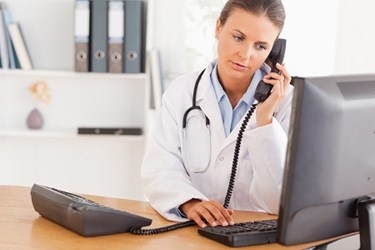First Responders Avoid Hospital Trips With Telemedicine

By Katie Wike, contributing writer

Allegheny Health Network is launching a pilot program to help first responders connect patients to doctors through telemedicine before they make a trip to the ER.
Not all 911 calls turn out to be emergencies. For example, a diabetic woman who calls because she feels anxious, sweaty, and shaky may benefit from a glass of orange juice and a glucose solution, rather than an ambulance trip to the hospital. Situations like this prompted Allegheny Health Network in Pittsburgh to pilot a program which virtually brings doctors to patients before they decide if a trip to the ER is necessary.
According to MobiHealthNews, this program works by connecting patients to doctors through iPads. They can speak to an emergency room physician directly without the ambulance ride. This is a better option for patients who don’t need to go to the ER, and some who don’t want to.
This type of pre-hospital care is useful in many situations says Robert J. McCaughan, VP, Pre-hospital Care Services, at Allegheny Health Network in a press release. “It can keep patients who don’t need hospital-based care out of the hospital, and it can get patients who need to be hospitalized into the hospital. It can also help a doctor determine whether a patient can be treated at a community hospital, or whether he or she needs to be transported to a destination offering specialized care, such as a certified stroke center.”
“Telemedicine, the use of telecommunications technology to deliver health care, is a rapidly growing component of U.S. health care,” said McCaughan. “This exciting innovation in Pre-hospital care is just the beginning of how we will be using telemedicine in our healthcare system in the coming years.”
If programs like this that offer pre-hospital care take off, the expected savings could be monumental. Avoiding hospital admission for cases that can be dealt with at home or determining if the problem can be better addressed at a community hospital or specialized care facility is critical.
“The benefits of telemedicine to the patient are innumerable, offering direct in-home access to a physician who can see them and talk to them,” said Richard Gibbons, Director of the Bureau of Emergency Medical Services, Pennsylvania Department of Health. “I’m very excited about the potential of this program and glad to see that it is happening in a community hospital such as Allegheny Valley.”
